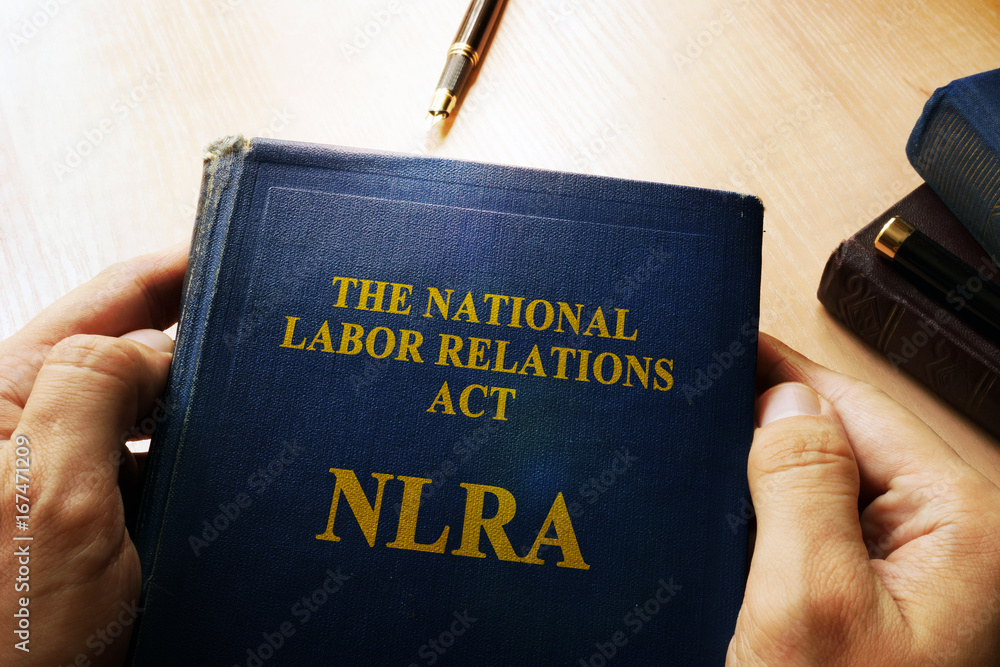Employee strikes seem to be widespread and frequent these days, occurring in all types of industries and professions: among grocery store workers, baristas, auto workers, teachers, healthcare workers, news reporters, Hollywood writers and actors, the list goes on. With increasing strike activity and an uptick in union organizing even in unconventional union settings, it’s critical for employers—both unionized and non-unionized—to understand the rights of employees provided by the National Labor Relations Act (NLRA).
It’s a common misconception that strikes and other “labor” activities are limited to unionized workplaces, however, the NLRA provides protections and rights to most non-management employees, regardless of union status. Given this, it is crucial for employers to be proactive and responsive in addressing any employee grievances, and cognizant of indications signaling strike potential in both unionized and non-unionized settings.
The Scope of the NLRA
The NLRA, enacted in 1935, is a foundational labor law that generally protects the rights of employees to organize, engage in collective bargaining, and take collective action, including engaging in strikes. The NLRA applies to most private sector employers even if there is no union representation.
Strikes, Walkouts, Social Media Complaints, and Other Protected Activity in Non-Unionized Workplaces
While unionized employees often have formal mechanisms and representation to organize strikes, non-unionized employees also have the right to engage in “protected concerted activities” for mutual aid or protection under Section 7 of the NLRA. This means that employees in non-unionized workplaces can legally strike, walk off the job, and gripe on social media to address issues such as working conditions, pay and other employment matters. The NLRA also brings extra scrutiny to employment agreements, severance arrangements and workplace policies, such as prohibiting employees from discussing their salaries.
Key Considerations for Employers
Knowledge is power and proactiveness is key for employers aiming to remediate any employee complaints; beginning with:
- Awareness and Preparedness: Employers should be aware that non-unionized employees can organize and participate in strikes. Being prepared for such actions involves understanding the legal protections employees have and the potential reasons they might strike.
- Communication and Engagement: Open lines of communication with employees can help address workplace issues before they escalate to strikes. Regularly engaging with employees to understand their concerns, working proactively to resolve issues, and following up when employee questions arise can mitigate the risk of any concerted labor activity, including strikes. Proactive communication is also important because once union organizing activity has begun, the ability to redress employees’ grievances may be limited. If there is reason to believe employees are starting to organize, contacting legal counsel for help navigating that process is the best next step to take.
- Legal Compliance: Ensure compliance with the NLRA by respecting employees’ rights to organize and take collective action. Retaliation against employees for engaging in protected labor activities is prohibited and can lead to legal consequences, including immediate recognition of a union.
- Policy Review: The regular review and updating of workplace policies to ensure they align with the NLRA is critical. These policies should be comprehensive and include guidance regarding employee conduct, communication and dispute resolution. These policies are often subject to scrutiny by the National Labor Relations Board, so consulting legal counsel is recommended to ensure all policies are in compliance with the NLRA and other national and local labor laws.
- Training and Education: Provide regular training for management and HR personnel on the NLRA and employees’ rights. Understanding the legal framework staff in such roles are expected to abide by can help in handling potential strikes appropriately and legally.
Conclusion
The uptick in recent union activity serves as a reminder that the right to strike is not limited to unionized workplaces. Employers must recognize that the NLRA protects all employees’ rights to engage in concerted activities, including strikes. By being aware of these rights and taking proactive steps to address employee concerns, employers can better navigate the complexities of labor relations and maintain a positive and productive work environment.
Melissa Healy is a Labor & Employment partner in the Portland, Ore. office of Stoel Rives LLP. She focuses her practice on providing traditional labor support to employers, including in bargaining, arbitration, and before the National Labor Relations Board; advising on employment law matters; and representing management in employment litigation.
Ryan Kunkel is a Labor & Employment associate in the Portland, Ore. office of Stoel Rives LLP. A trial lawyer, he helps management resolve complex labor disputes, including organizing drives, NLRB proceedings, and work stoppages, and advises and defends employers in employment-related disputes.

